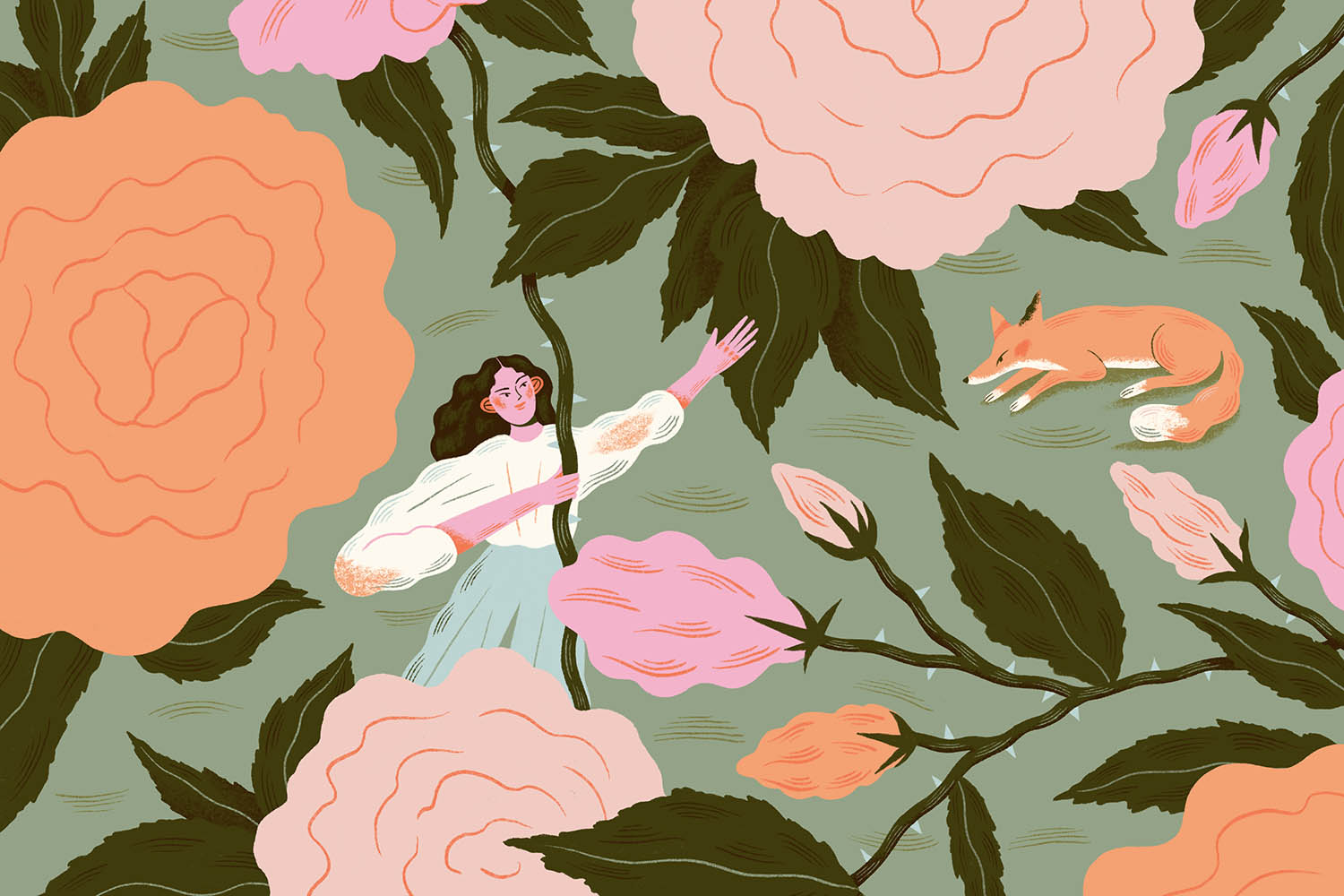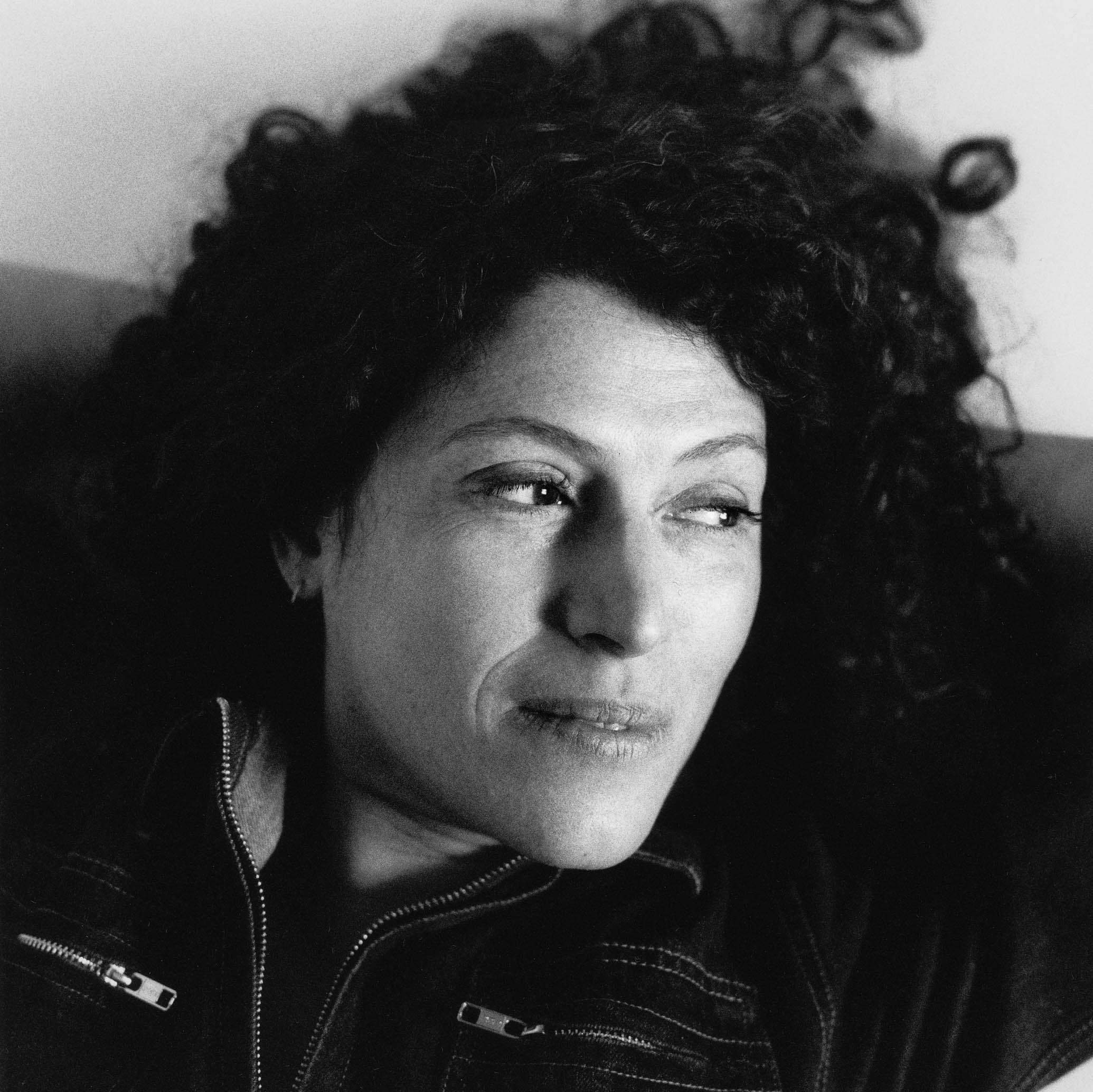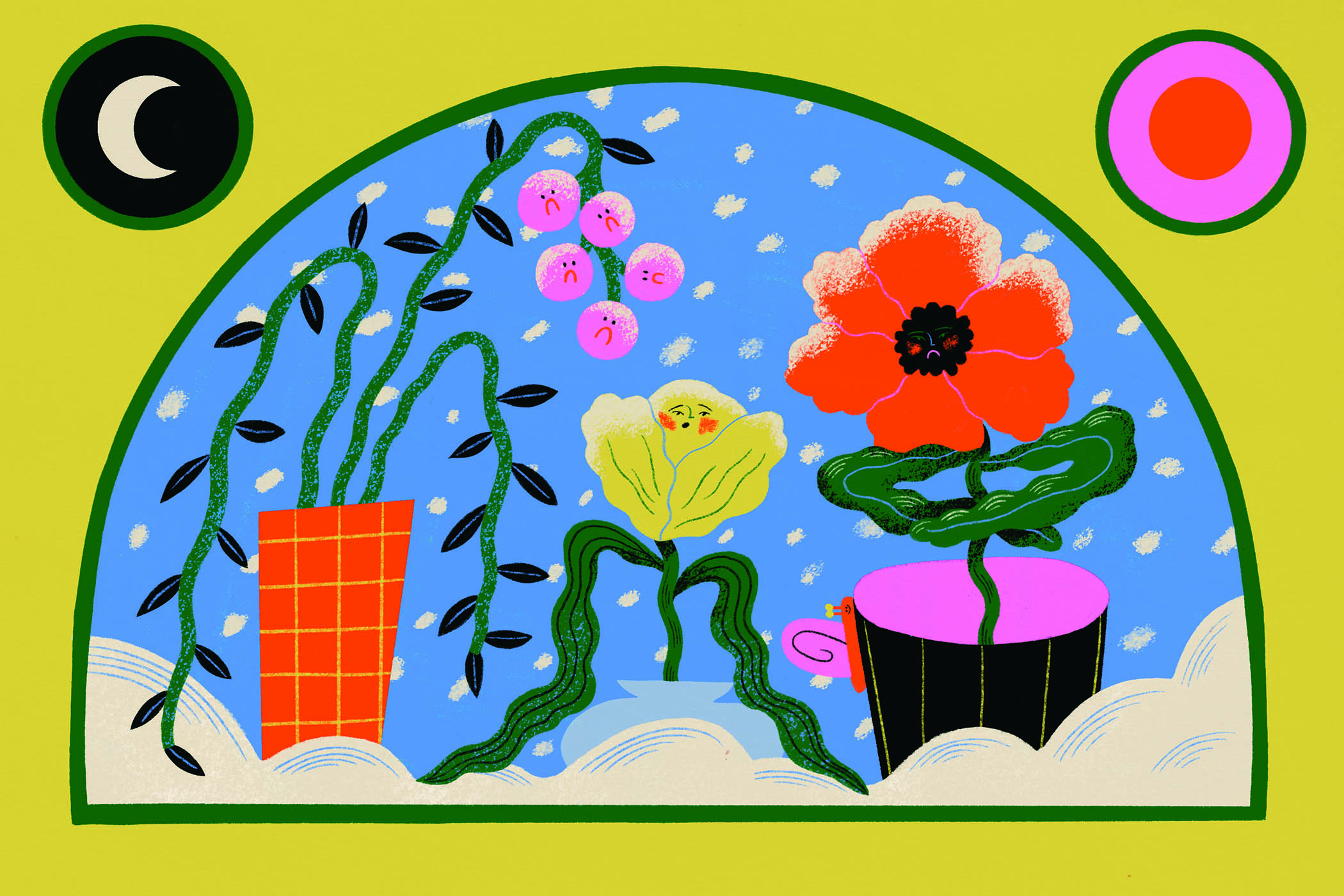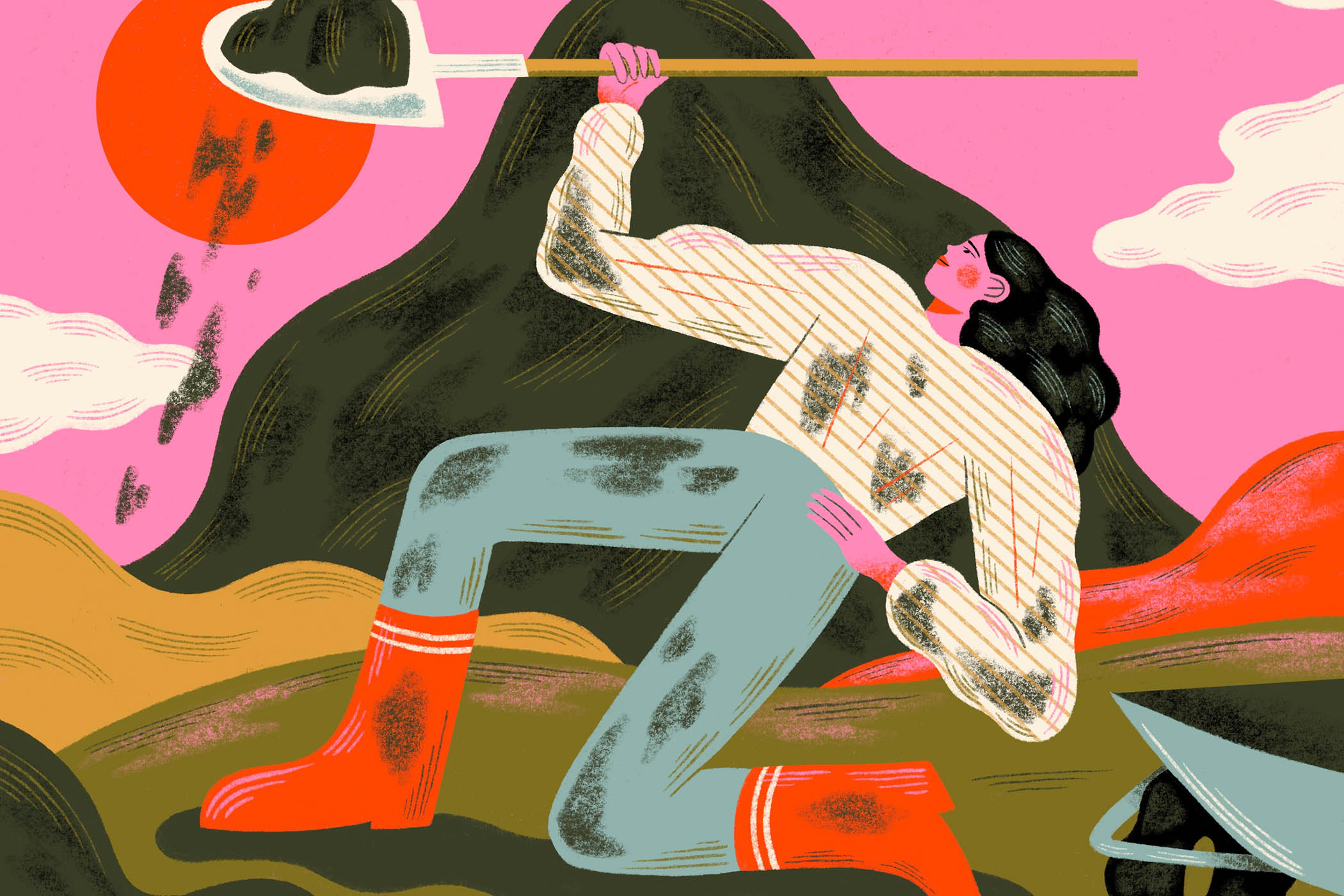Illustration by Clara Dupré
I hate roses. Everyone tells me so; it’s a matter of recorded fact. Readers of my gardening memoir, Rhapsody in Green, often remind me that I don’t see the point of most flowers, but roses? Roses I hate.
They’re absolutely right. Definitely. Except…
The problem started, as usual, with fiction. I’d been struggling to get my new novel airborne. Specificity is all: characters need interesting details, if we’re to care about them. Although I’d glimpsed one protagonist’s outline, I wasn’t sure how she looked, or sounded, or… help. I did know she had an impressive garden, but was not a gardener. Also, that she was one of those snobs who’s ashamed of their lack of poshness. Then I had an idea: roses. Roses would be her passion, her tell.
No decent person could want a rose garden. They’re either a jungle of leprous leaves, rotting petals and prickles whipping about at eye-height, or dried-up beds of lurid coral, magenta, tangerine-coloured horrors. Roses encompass everything off-putting about gardening: inaccessibility, snobbery, the requirement of knowledge, the need for space. It’s bad enough inheriting one: is that hedgehoggy terror on the shed hybrid, species, floribunda, damask, standard, tea, modern, old, wild? Besides, all roses, once neglected, are bushy and rambling, unless they’re the tiny-flowered type, which should be criminalised.
Voluntarily growing roses makes even less sense. Coastal Australia is an orgy of colossal flamboyant plantlife, yet this year, in the fullness of an Adelaide summer, I passed endless miniature English front yards: chainlink fences, gnomes, a single lollipop-pruned outrage on a mean little scone of soil, as out of place as Edwardians insisting on haggis in Madras.
Roses are best when allowed to roam free, while subtly kept in check; for this you need both acreage and help. Having a Mme Alfred Carrière flopping about in an apple tree – lovely. A chaos of deeply scented old varieties like an ice-cream sundae: mouth-wateringly mulberry Tuscany Superb, apricotty Phyllis Bide – ideal. But who has that kind of space or money? And then why not choose an orchard, a nuttery, a waterlily pond, a simple spinney, instead?
Of course, I can appreciate a Reine Victoria or Queen of Sweden, burying my nose in their cool petals to snuffle up that delicious scent. I love rosehip tea, despite the tedium of picking, drying, halving, fluff removal. I’ve even tried to care for a rose. My garden has one at the back: unscented, biliously yellow-pink, but established, so worthy of pruning. I bought leather, gauntlet-style gloves, immediately lost one among the ivy. A fox ate it. The end.
But think of the roses in other people’s insane front gardens: Calpol pink; knicker pink; banana; brown. Notice how rarely they smell of anything at all, not that you ever see anyone sniffing. As for their names, from the emetic (All My Loving; Smooth Little Treasure; Schoolgirl) to the excruciating (Cliff Richard; Emily Brontë; William and Catherine). There should be some sort of register.
Think of the roses in other people’s insane front gardens: Calpol pink; knicker pink; banana; brown
Think of the roses in other people’s insane front gardens: Calpol pink; knicker pink; banana; brown
So it made perfect sense for my horrible character to love roses. They’re exactly the kind of flower someone who models themselves on great Englishwomen, yet isn’t, would adore. Who cares if most of my favourite people also love them? It’s fiction, darling. Needs must.
So I started to research and an upsetting thing happened. I began to care. Within five seconds of thinking about roses, one is drawn to the David Austin website. Austin, the greatest British rose breeder, was the man who worked out how to combine the perfumed beauty of old roses with the repeat flowering of modern roses and, best of all, named them English roses, but “not for any nationalistic reason”.
I was sold. Enthusiasts love enthusiasm and Austin was wild about roses, plus, he was hunky, dyslexic, a reader. The website is classy: there’s even, dangerously, a quiz. Just as I can spend hours designing my dream Nike Air Jordan high-top, it was terrifyingly easy to choose the perfect, say, raspberry-coloured arching old rose (Charles de Mills) or bosomy highly fragranced creamy climber (Claire Austin). But what about those elderflower-smelling petals? How could I withstand the siren cry of the blackcurrant-scented, if distressingly named, Royal Jubilee?
In fact, come to think of it, hadn’t I spent my adult life casually sniffing roses? Hadn’t my poor children risked missing school registration because I couldn’t stop inhaling every delicious flower? Was it not the case, m’lud, that I’d been spotted sidling up to the worst bicoloured aberrations, if they looked like they might smell nice?
Now I have a problem. Actually, two. First: my character. Roses are no longer a sign of bad taste; they’re almost a recommendation. What else can she like: canaries? Mink? Second: I seem to have ordered the catalogue. And possibly put Desdemona in my online basket. It has chalice-shaped cucumbers. No, wait, an interplay of light and shadow on its almonds. Hang on, it’s a climbing bumbling bending shrub old musk. How could I resist?
Newsletters
Choose the newsletters you want to receive
View more
For information about how The Observer protects your data, read our Privacy Policy



